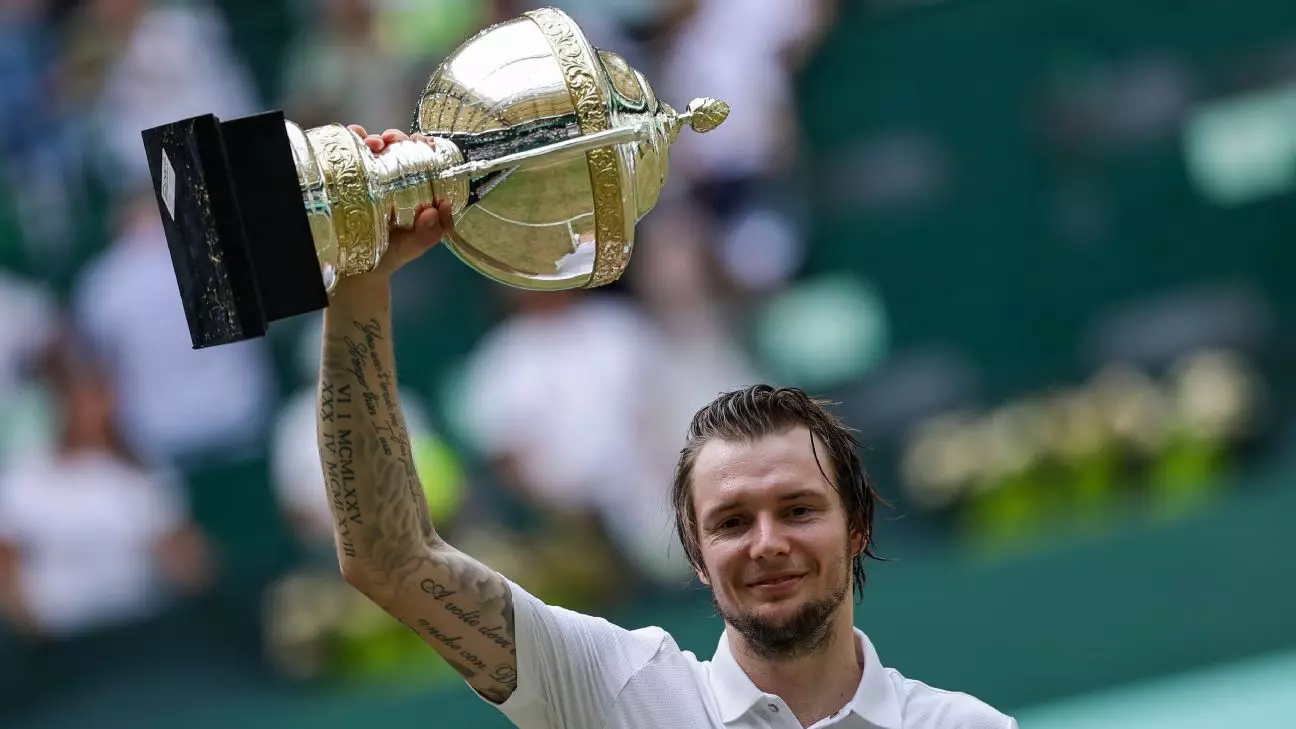In an electrifying showdown at the Halle Open, Alexander Bublik secured a monumental victory over Daniil Medvedev with a score of 6-3, 7-6 (4). Not merely an upset, this match represented a significant turning point in Bublik’s career, allowing him to finally conquer Medvedev after previously enduring six defeats against the Russian superstar. Bublik’s win is more than just a statistic; it highlights the determination and evolution of a player known for his unorthodox style and flair on the court.
Winning the Halle Open for the second time marks Bublik as a formidable contender in the realm of tennis, positioning him among a select group of players. With this victory, he joins tennis legends like Yevgeny Kafelnikov and Roger Federer, further solidifying his legacy in grass-court play. It’s both impressive and telling that Bublik can claim this title when only a handful of athletes have been able to replicate such success.
A Game of Grit: The Match Dynamics
Bublik’s path to the ultimate victory was paved with moments of brilliance. His opening set demonstrated an impressive command of the court, highlighted by a 12-point winning streak that showcased his ability to dictate play against a top competitor. This powerful start was crucial, as it set the tone for the remainder of the match and illustrated Bublik’s growing confidence. However, the second set brought forth challenges that tested his mental resilience; he recorded five double-faults, indicating that even in triumph, the path to success is fraught with difficulties.
Medvedev, on the other hand, exhibited flashes of his elite status, pushing through the semifinal against home favorite Alexander Zverev before facing Bublik. However, errors crept into his game at critical moments during the tiebreaker. Medvedev’s backhand miscalculations created openings for Bublik, enabling him to capitalize and seize victory in just 81 minutes. This match served as a prime example of how even the most seasoned players can falter under pressure, thus leveling the playing field for emerging talents like Bublik.
Sporting Spirit and Respect
Post-match, Bublik displayed commendable sportsmanship by acknowledging Medvedev’s prowess, which encapsulates the spirit of tennis. “Daniil, I’ve been cursed to play you forever,” he expressed, an honest reflection of their competitive history. His words not only displayed humility but highlighted the respect Bublik has for his opposition, even as he relished his hard-earned victory. Such sentiments reveal the deeper connections forged in the world of sports, where rivalry often builds camaraderie.
Conversely, Medvedev’s reaction post-match underscored the complexities of championship tennis—the exhilaration of advancing through tough rounds contrasted with the disappointment of not finishing on top. His statement, “not the best feeling in the end,” is a reminder that with each match, athletes grapple with high aspirations and the reality of competition.
Bublik’s Halle Open triumph is not merely a victory; it symbolizes breaking barriers, demonstrating that resilience and dedication can finally lead to success, regardless of past failures. In a sport where mental fortitude is as crucial as physical prowess, this win heralds a new chapter for Alexander Bublik.

